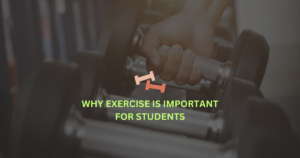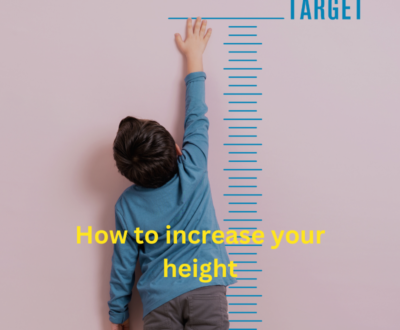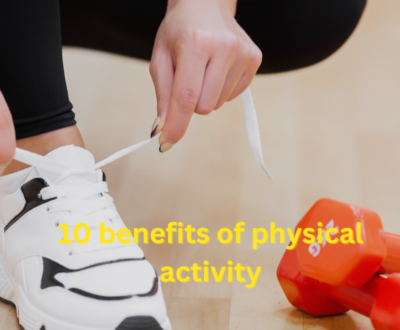Introduction:
Today we will tell you that Why exercise is important for student The demanding nature of student life, with its academic pressures and long study hours, often leaves little room for physical activity. However, the importance of exercise for students goes beyond the gym or the playing field. Regular physical activity has a profound impact on both the physical and mental well-being of students, playing a crucial role in their overall academic success and personal development.

Enhanced Cognitive Function:
- Exercise has been linked to improved cognitive function, including better concentration, sharper focus, and faster information processing. Engaging in physical activity increases blood flow to the brain, facilitating the growth of new neurons and promoting overall brain health. This enhanced cognitive function can directly translate to improved academic performance.
Stress Reduction:
- To reduce stress , students should do exercise be The academic journey can be inherently stressful, with looming deadlines, exams, and the pressure to perform. Regular exercise serves as a powerful stress reducer by triggering the release of endorphins, the body’s natural stress-relievers. Whether it’s a brisk walk, a jog, or a workout session, physical activity provides a healthy outlet for stress, promoting emotional well-being.
Improved Sleep Quality:
- Quality sleep is paramount for effective learning and memory consolidation. Engaging in regular physical activity helps regulate sleep patterns, ensuring students get the rest they need. Improved sleep quality contributes to better focus, enhanced mood, and overall cognitive function, creating an optimal environment for academic success.
Increased Energy Levels:
- The demands of academic life can be draining, both mentally and physically. Regular exercise boosts energy levels by improving cardiovascular health and increasing overall stamina. Students who incorporate physical activity into their routines often report increased alertness and vitality, making it easier to tackle academic challenges with enthusiasm.
Boost in Self-Esteem and Confidence:
- The transformative effects of exercise extend beyond the physical. Achieving fitness goals, whether big or small, fosters a sense of accomplishment. This sense of achievement contributes to increased self-esteem and confidence, positively influencing how students perceive themselves and approach their academic efforts.
Social Connection:
- Many forms of exercise involve social interaction, providing students with opportunities to connect with peers outside the academic setting. Joining sports teams, participating in group fitness classes, or engaging in recreational activities fosters a sense of community. Social connections contribute to emotional well-being, creating a support system that extends beyond academic challenges.
Healthy Habits for Life:
- Introducing regular exercise during the student years establishes a foundation for a healthy lifestyle in the future. Developing the habit of priority physical activity contributes to long-term health, reducing the risk of chronic diseases associated with a sedentary lifestyle.
Conclusion:
In the fast-paced world of academia, where the focus is primarily on intellectual pursuits, it’s easy to underestimate the importance of exercise for students. However, the evidence is clear: regular physical activity is not just a luxury but a necessity for academic success. From improved cognitive function and stress reduction to enhanced sleep quality and self-esteem, exercise plays a multifaceted role in shaping well-rounded, successful students. As educators and students alike recognize the symbiotic relationship between physical activity and academic achievement, integrating exercise into the student lifestyle becomes an investment in both present and future success.
More from our blog
See all postsRecent Posts
- Benefits of doing yoga daily March 9, 2024
- how to increase your height March 6, 2024
- Benefits of doing sudarshan kriya daily: How it works March 2, 2024










Pingback: how to increase your height | fitnessgrowth
Pingback: 10 benefits of physical activity | fitnessgrowth
Pingback: what are the benefits of taking milk - Fitness Growth
Pingback: How to keep your heart healthy - Fitness Growth
Pingback: What things should be kept in mind while exercising. - Fitness Growth
Pingback: Why fitness important in our life - Fitness Growht